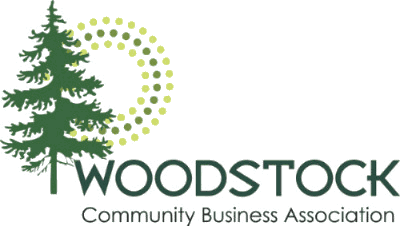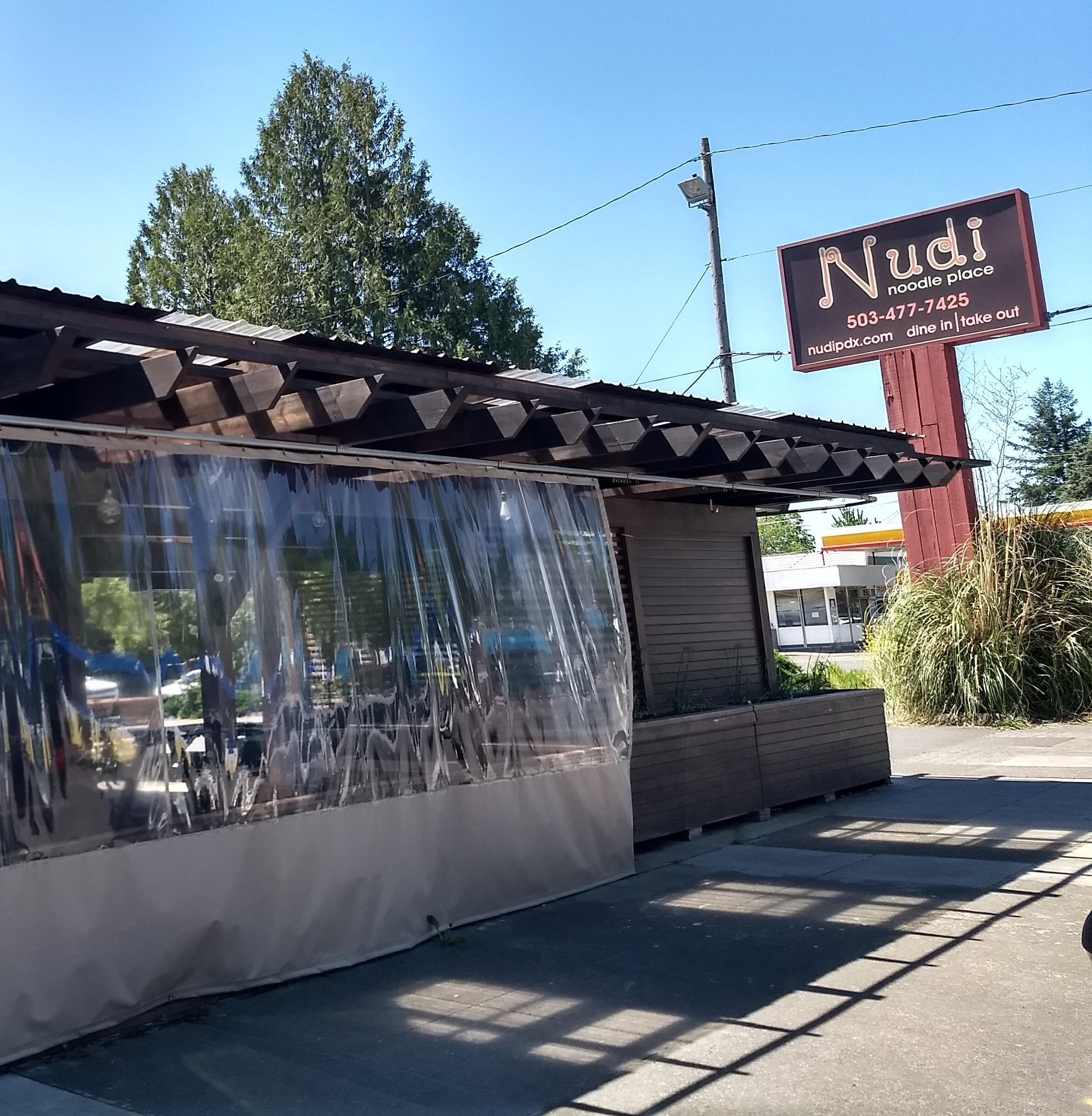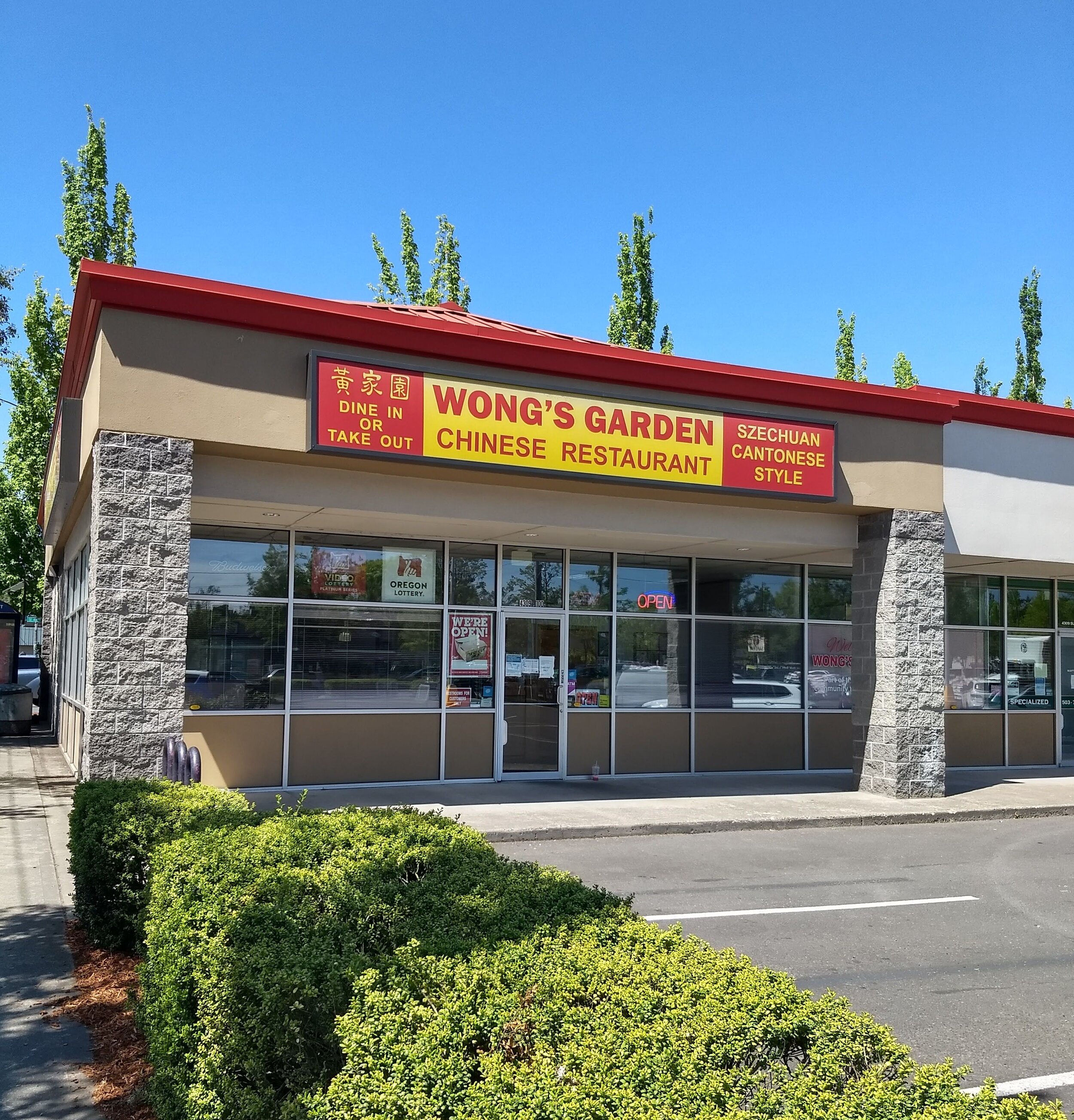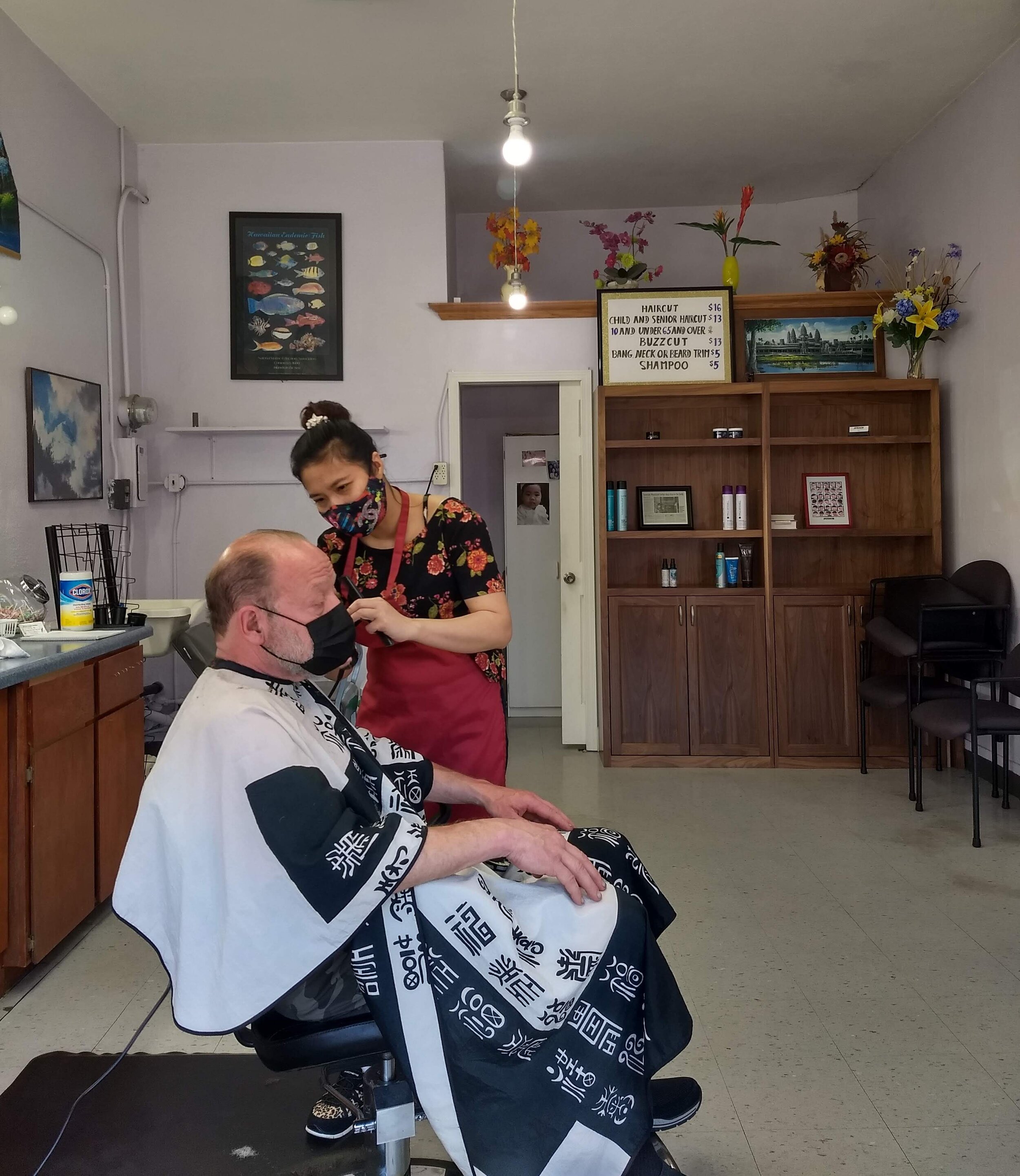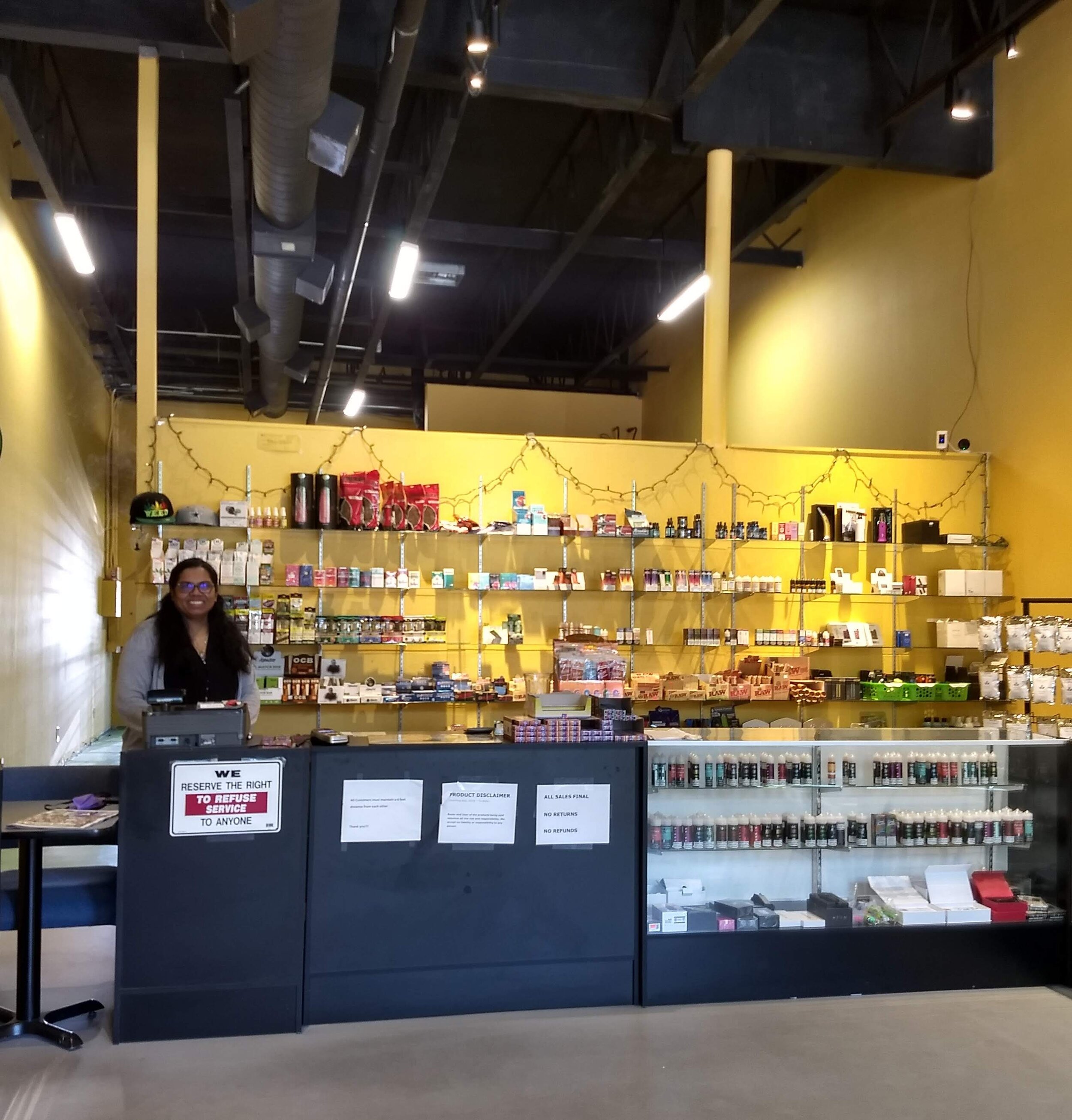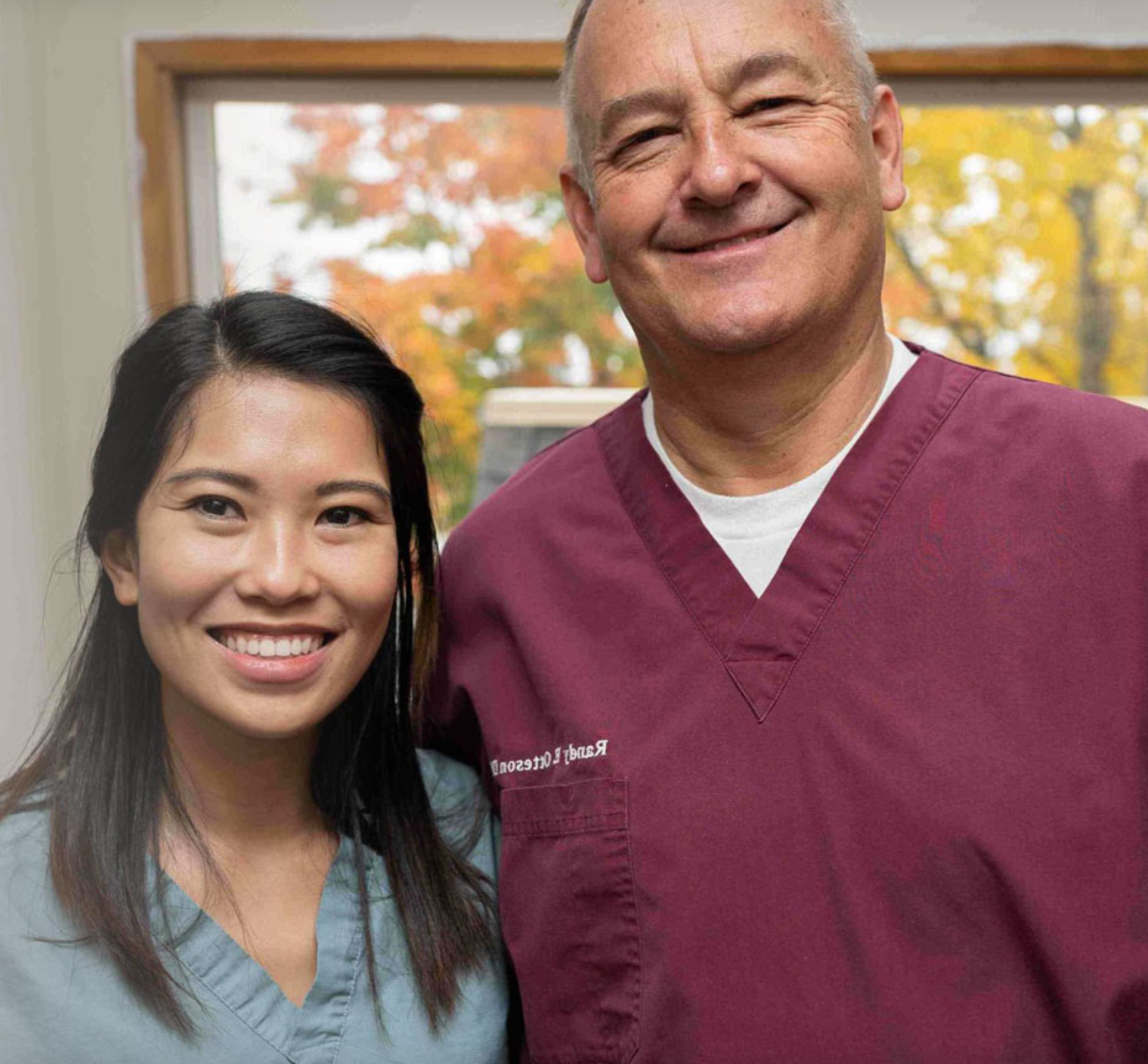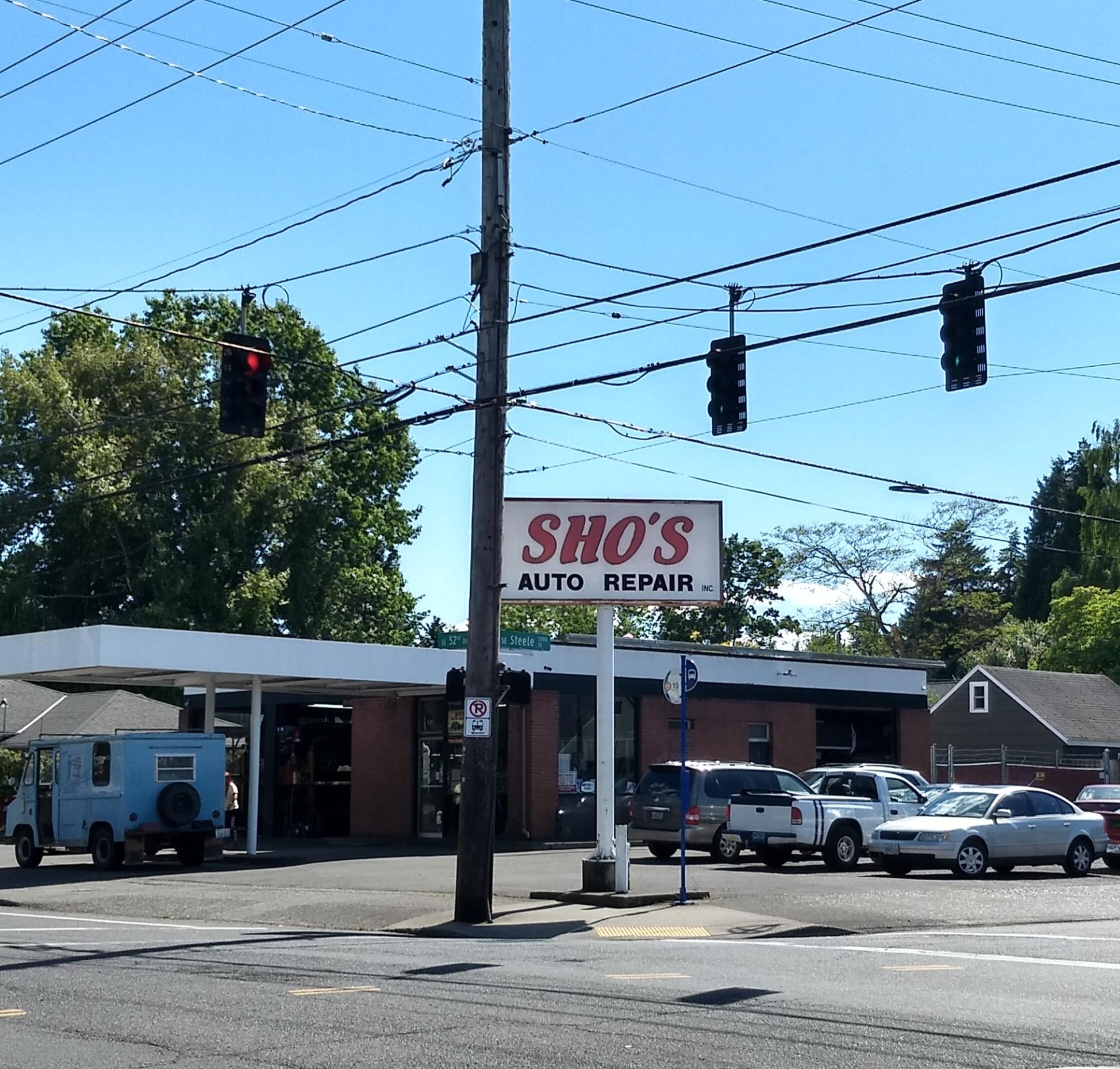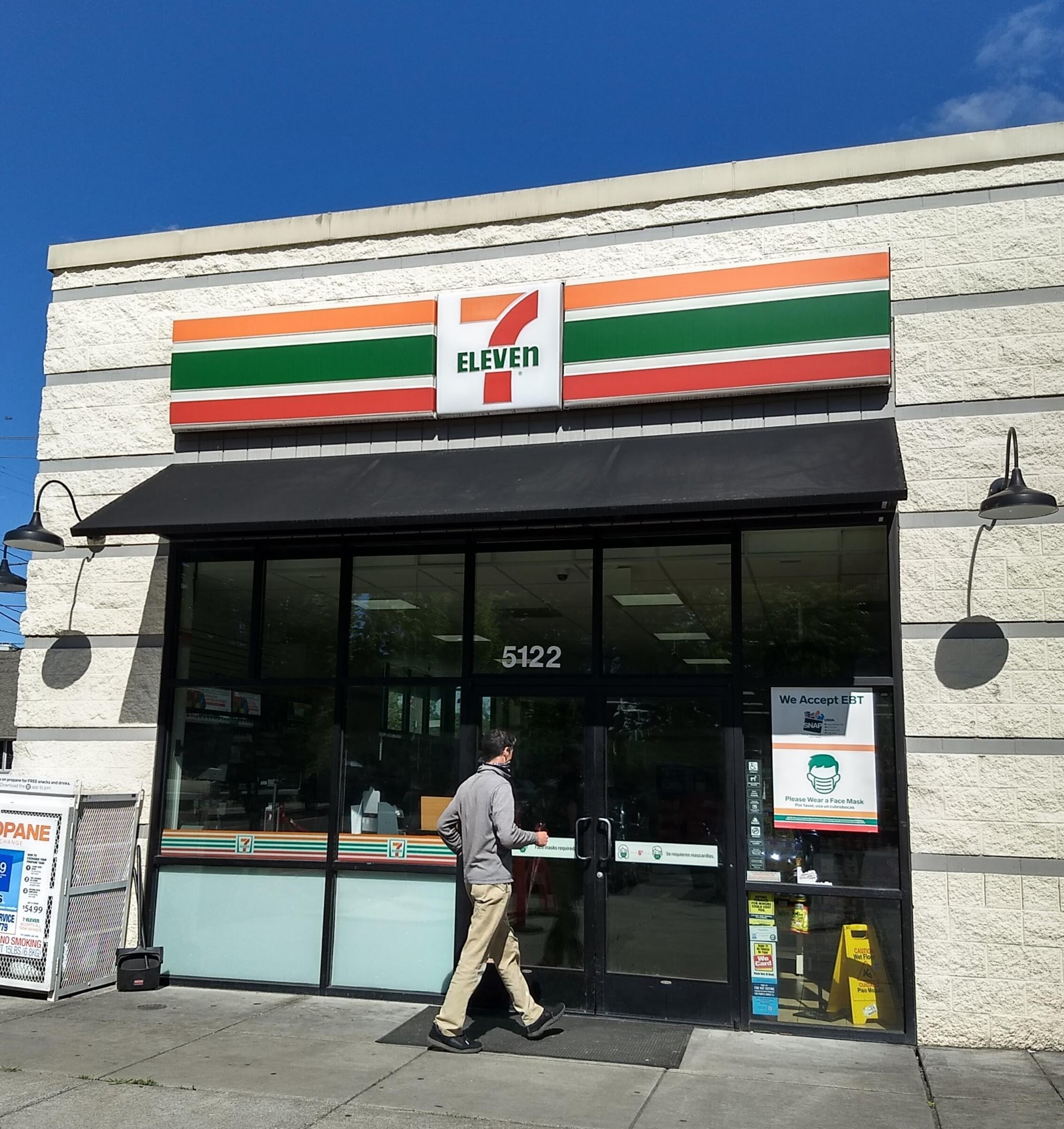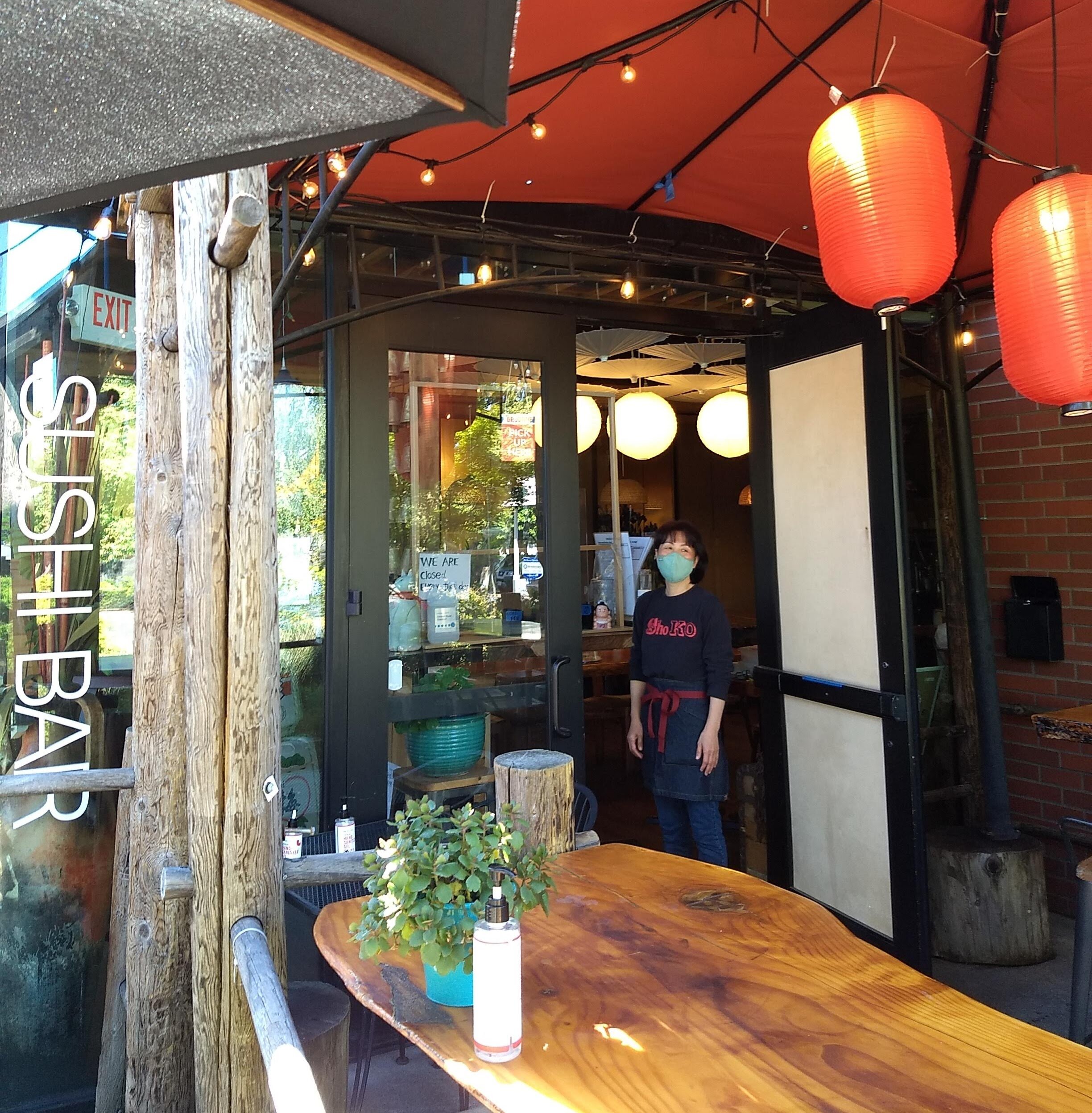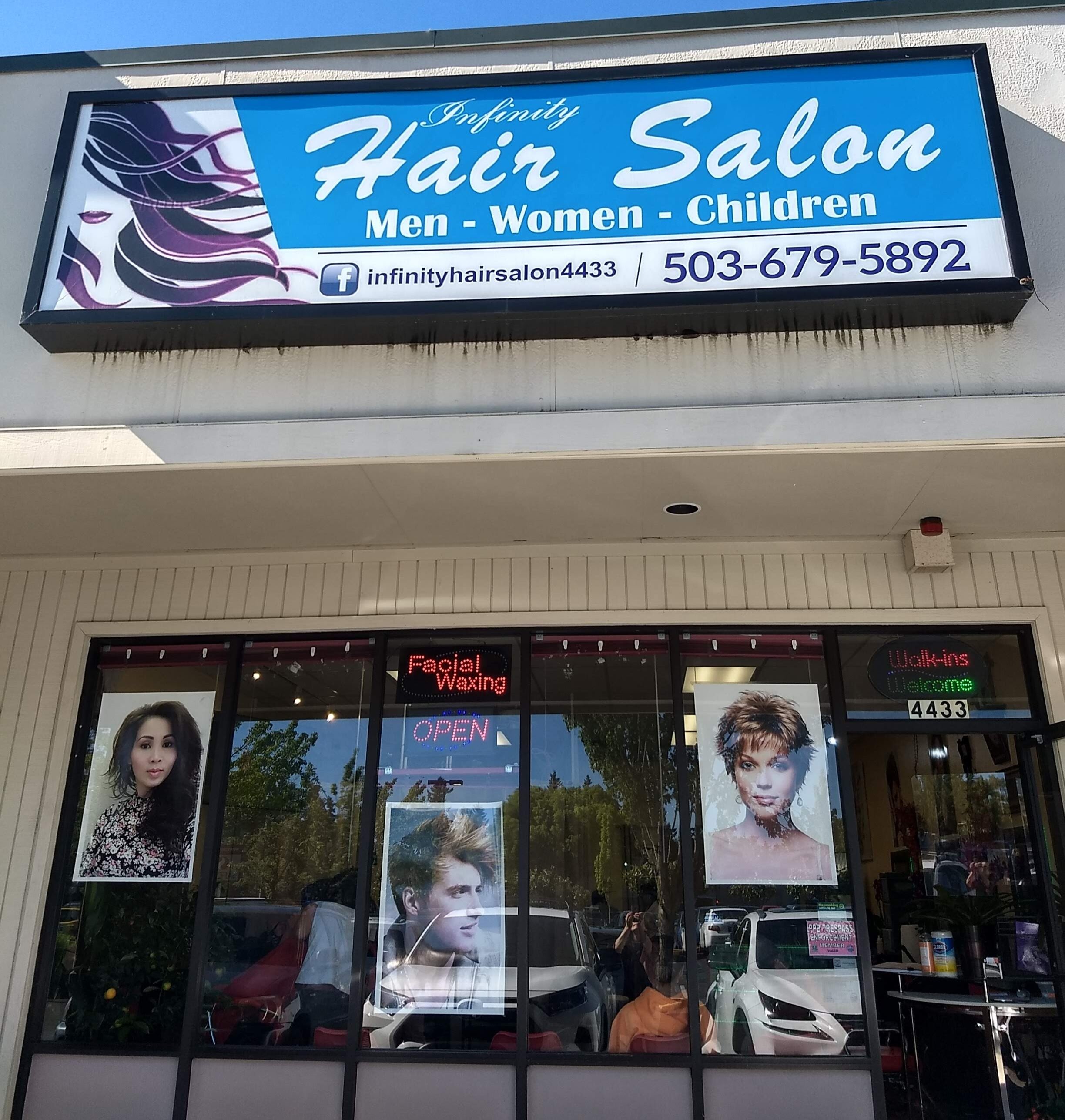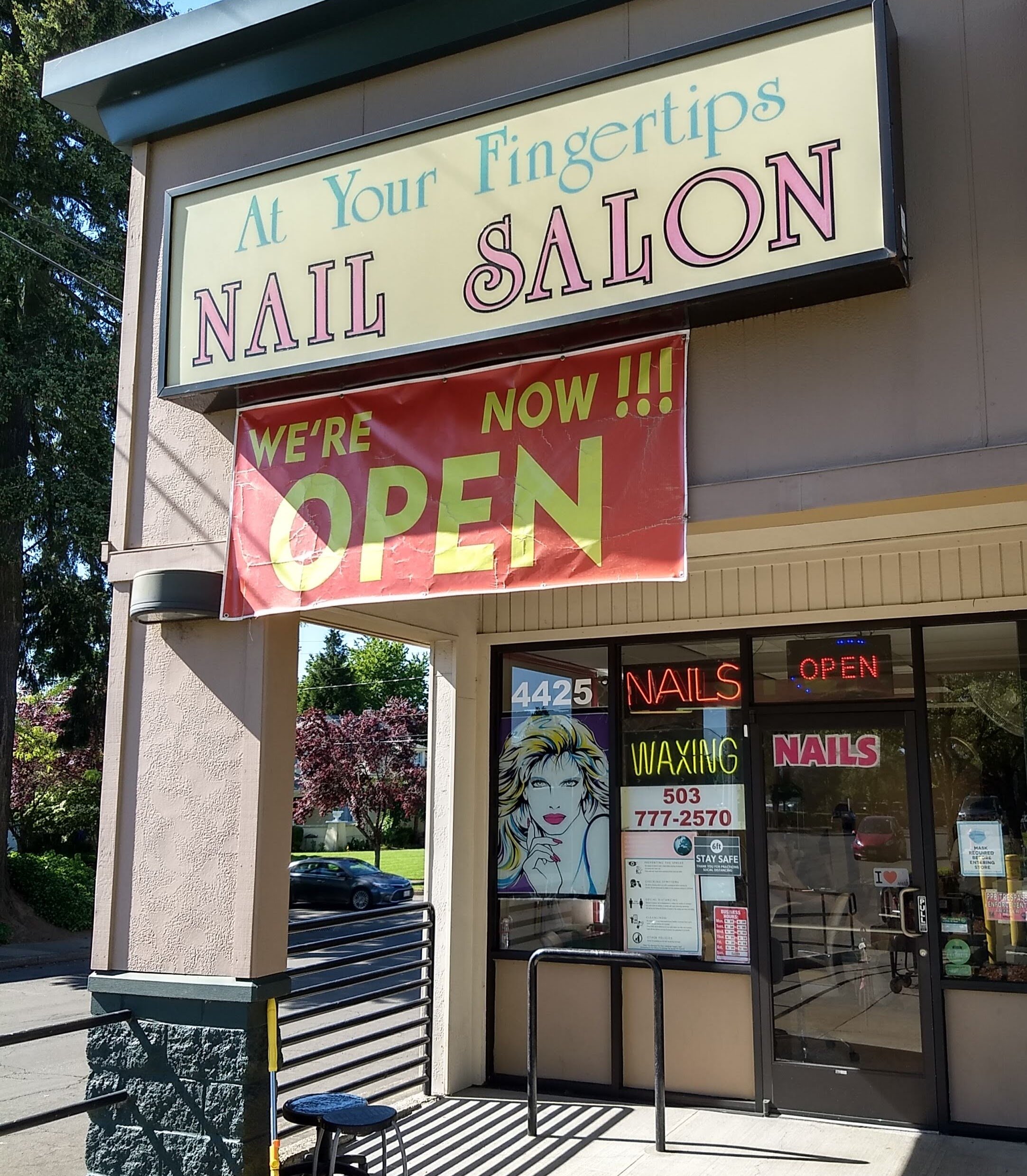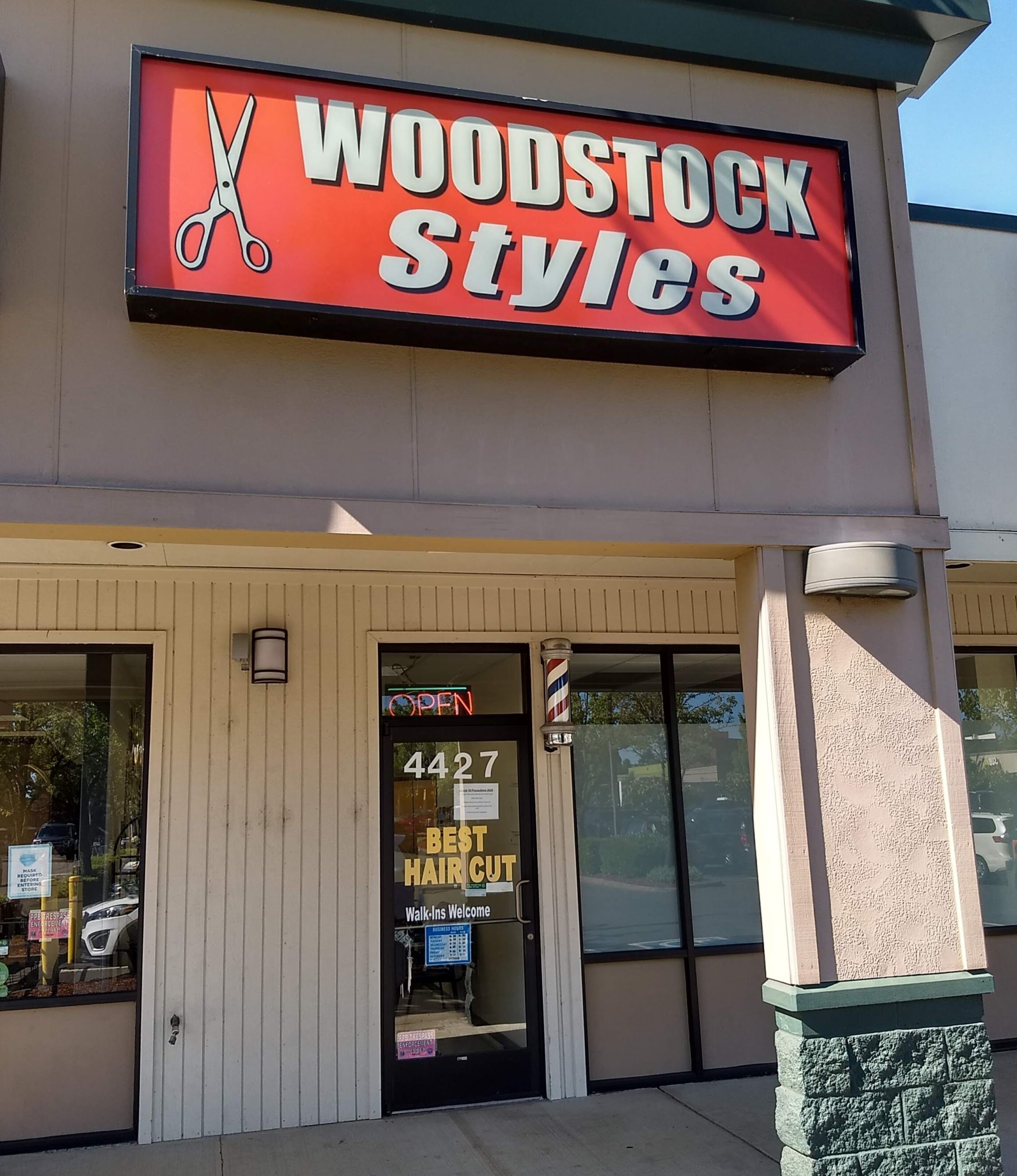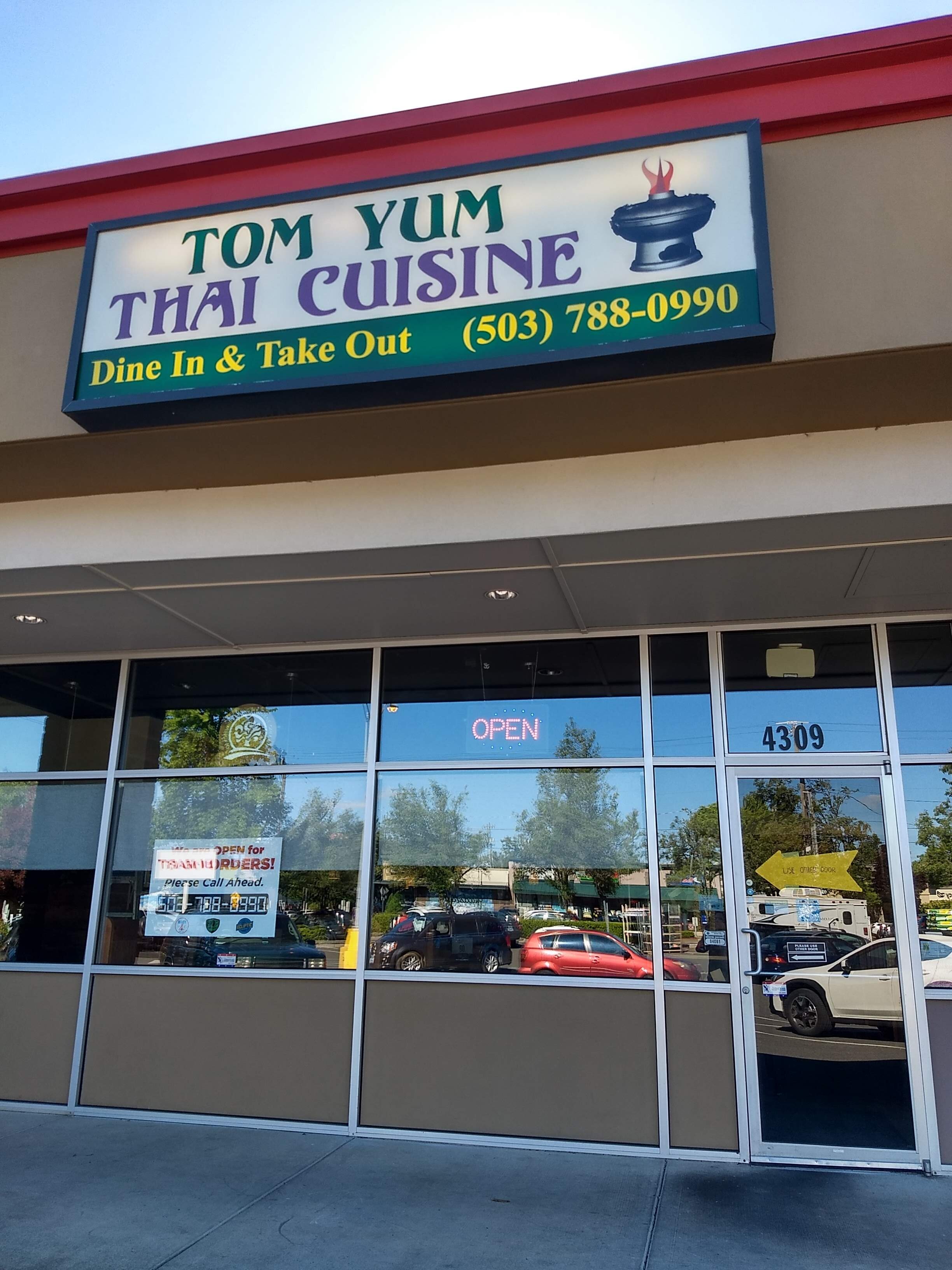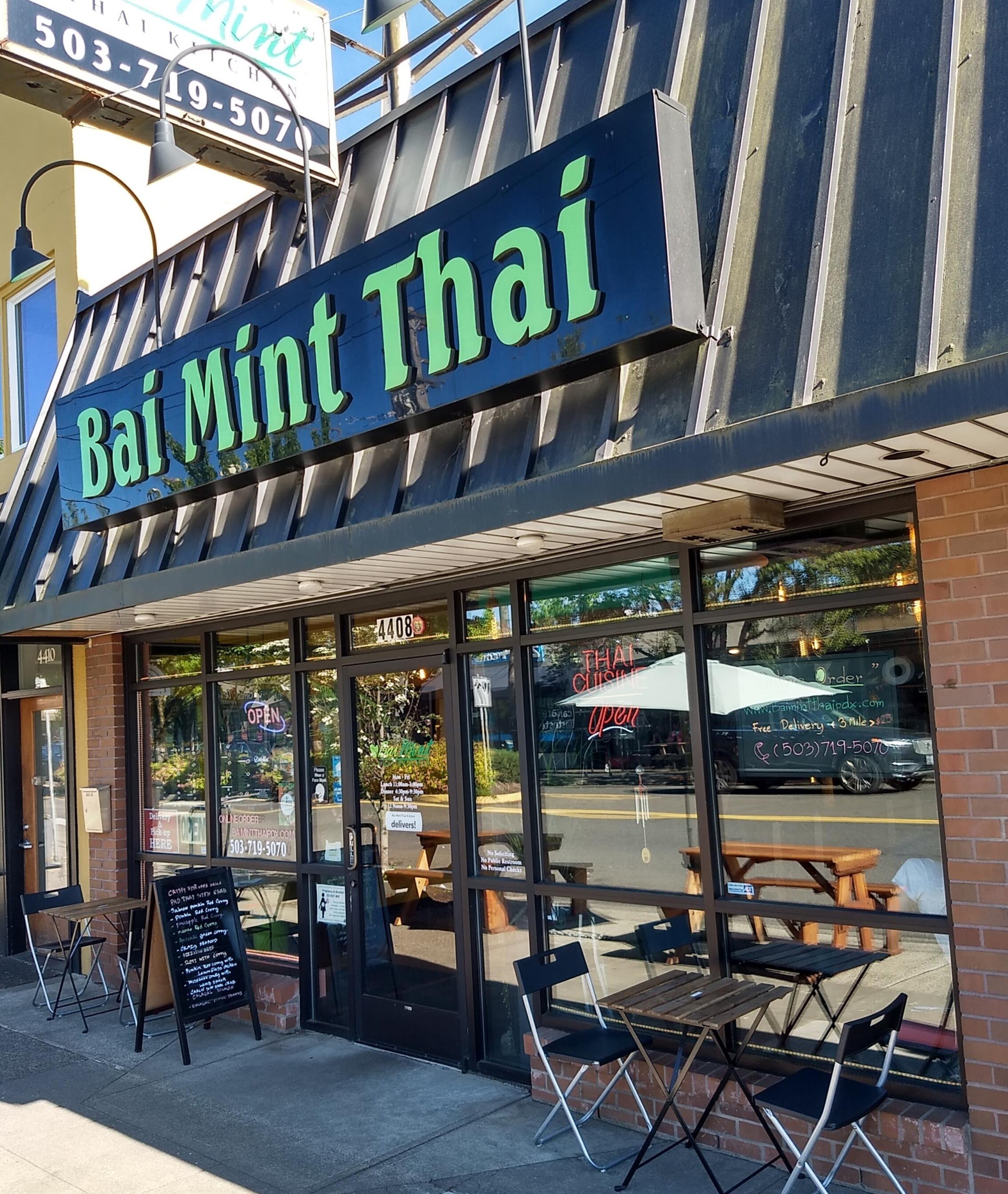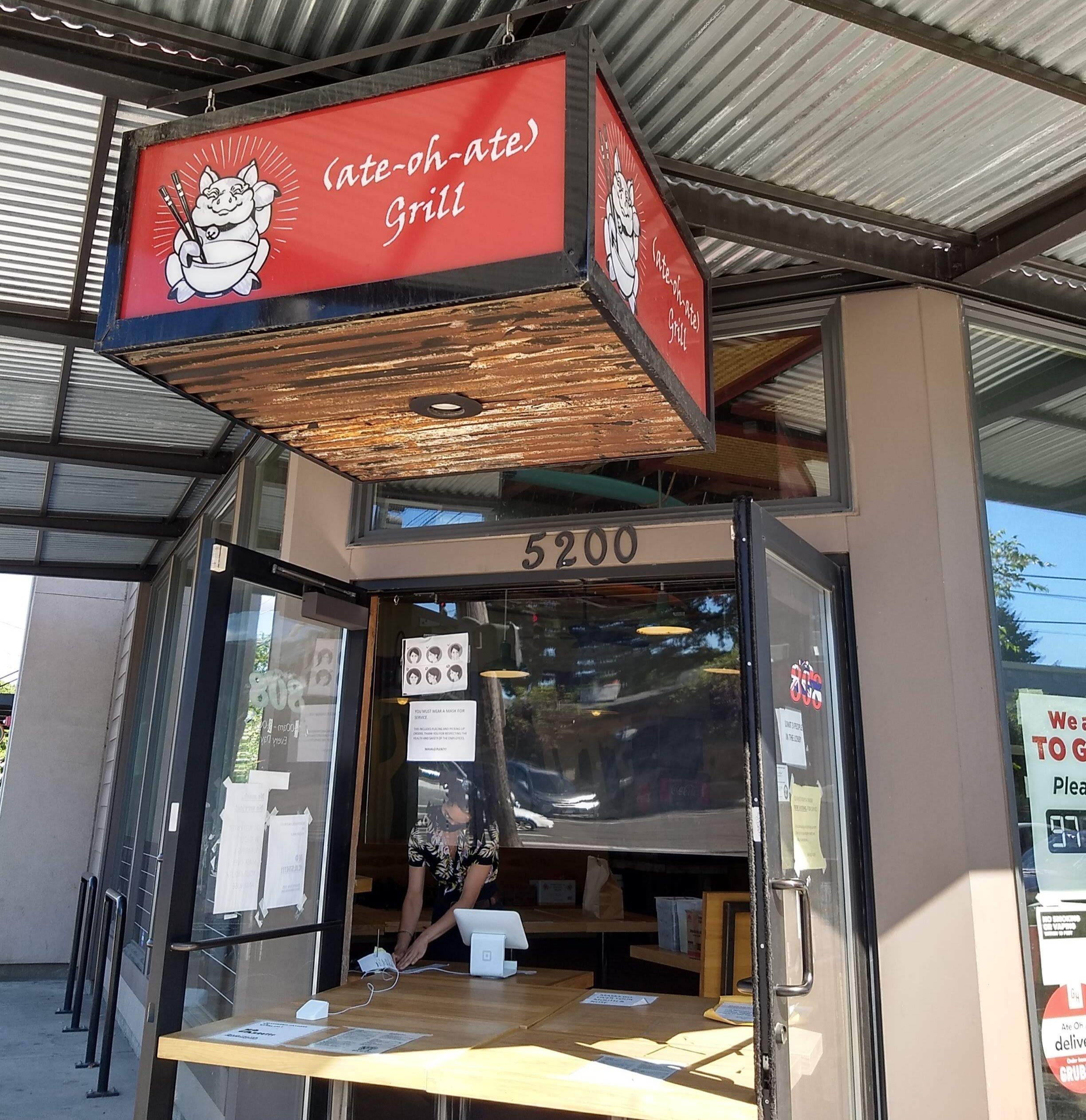VIDEO TRANSCRIPTION:
SAM ADAMS: My name is Sam Adams, and I work for Mayor Ted Wheeler. I'm joined on this Zoom by coworker Khanh Tran, who is the mayor's Director of Business and Economic Development. And we're part of the Strategic Innovations Group in the office of the mayor.
I'm in this neighborhood a lot. My mom and stepdad live on Ellis, just up the street from the center of the neighborhood. We're reaching out to neighborhoods and business districts across the city to find out what your needs are. And to also give you a summary of the actions that are underway to address issues like houselessness, safety issues, and cleaning up the city. We're working on brand and reputation of the city after the very difficult year that we've had, and also events and activation planning and support. So I'll just give you a quick rundown of that and then open it up for Q&A.
So the strategy for recovery, for the City of Portland to recover, is following what’s known as the FEMA recovery strategy. The first stage is to save lives and prevent further loss of lives, livelihoods; the second is to secure economically and provide economic security for those impacted. In our case, it would be the pandemic and we also had fires over the summer, and for some people they were impacted by protests across the city.
17:56
The first stage is to help people, like I said, save lives from the pandemic and to prevent further spread of the pandemic. Second is to clean up and to prepare the city for reopening. Stage three is to open. And stage four, if the first few stages are done effectively, we don't just recover the place we were before, but actually move beyond just getting to zero or getting to neutral. And in our case, the mayor and the City Council not only want us to recover, but we want to recover so that we are more equitable and inclusive and more sustainable, and to do everything we can to address the issues of affordability.
18:47
So the mayor's office has been reorganized and the Strategic Innovations group of which I lead, of which Khanh is a member of eight other members, and we focus on the proactive agenda of the mayor. There's another group of people that do the very important policy work that's more reactive that comes up every day. The mayor's priorities are to improve business success, and to improve business districts, Central City, yours and beyond. The second is to improve livability of the city. We're about as dirty as we've ever been, and as ratty as we've ever been. And the third is to address the issue of houselessness and also the impacts of houselessness on others. And the fourth is to improve safety and to reform public safety as well.
And as we focus in on the second of the steps of FEMA recovery, which is clean up and get prepared to open up, we have assembled and we've been working with Venture Portland — and you'll have opportunities to get involved — what we call Action Tables. And you know, Action Tables is a euphemism for a committee or task force. But we named them that to focus on that first word, “action.” And I'm going to run through what these Action Tables are doing, again, within that sort of step two of FEMA recovery mode, clean up and get ready to open.
So the first one is safety, and Safety and Compassion Action Table. For the weeks that I've been in the mayor's office, we've been focused on two things. One is to address the gun violence that has occurred across the city. And tomorrow, there'll be a major announcement, with our partners, on how we want to intervene and break the cycle of the gun violence. So more on that tomorrow.
The second is vandalism, and there is, in some neighborhoods and then some in Central City, just this pernicious vandalism, this sense of impunity that, you know, you can wreck businesses, and there aren't really any consequences. So, last week, we had progress. We got the district attorney, we got the sheriff, that is the jailer, and we got the Portland Police Bureau to align ... around the goals that vandals will be arrested, they will be detained, they will be booked, and they will be subject to pre-arrest sanctions, such as ankle bracelets and restrictions on activities in the city. What you didn't hear me say is they'll go to court, and the reason for that is the courts are not processing but the most heinous of crimes ... the most heinous person-to-person crimes. So they're not setting court dates and they're not having trials for a whole bunch of very serious crimes, including property crime. But our discussions and our announcement on this alignment of an agreement that property crimes everywhere are bad, property crimes, and they have amplified economic impact [and] need to be addressed. And so when the courts open up, hopefully in the next three weeks, in addition to these pre-court, pre-trial, new sanctions, there will be bandwidth in the courts to prosecute these property crime vandals. And that's important, because there is this sense of impunity around the city. And it's not just downtown. I was in the Jade District days ago and they had a rash of break ins and vandalism... Montavilla, South Tabor Neighborhood Association had 17 businesses vandalized. The NE Broadway area, we’re seeing another rash of bad vandalism. So it is important for a number of reasons, but economic reasons as well, that the city really focused on this, and that's been job number two after the gun violence in terms of our safety priorities. So that's the work of the Safety and Compassion Action Table.
The compassion piece really focuses in on the fact that in the next 45 days, you, us Portlanders, have probably the best opportunity since I've been alive, to help address the issue of houselessness. And what I mean by that is there are two new funding initiatives, actually, they were both measures, the decisions of which how they are going to be spent will be made, probably in the next 45 days. So first is the metro bond measure around houselessness services. And that's expected for the Tri County area. It was originally expected to generate $230 million divided out by the three counties it's now going to generate probably $180 million, which means Multnomah County gets about 60% of that. That will be decided by the Multnomah County Commissioners how it will be spent. And there are a number of folks including my boss that want to make sure that a good amount of investments goes to getting people that are chronically homeless, off the streets and into a better place.
25:00
It doesn't necessarily or can, even with that amount of money, afford everyone gets a house. But alternatives to shelters, safe camping places, tiny home villages if you've seen those. Commissioner Dan Ryan is leading the city's housing efforts and he's working on these alternative shelter options. And my boss, the mayor, wants to see that when this money is proposed that it is going to adequately fund this burgeoning chronic homelessness issue — for their sake, and for the sake of those that are impacted by the houseless camps. So that's the safety and compassion.
The other element to the compassion side of our efforts is the fact that statewide ballot measure 110 passed last November takes the finally forecasted, finally budgeted cannabis tax revenue and invests it in community-based organizations to provide low- and no-cost substance abuse disorder treatment. Oregon is 50th out of 50 states in access to low- and no-cost drug abuse treatment. That will be decided in Salem, how the money is allocated around the state, and Portland and the Portland region are often the losers in that statewide allocation formula. For example, many of you as business owners pay commercial leases or commercial rent. Well, the legislature in the special session appropriated $100 million to address, to provide vouchers for commercial rent relief, commercial lease relief. The Portland region is about 43% of the entire state's economy by value, and yet we're only getting 20% of that commercial rent relief allocation for landlords and for businesses. So we're gonna have to fight for our fair share of these dollars to help those that are suffering from substance abuse disorder. So that’s public safety and compassion, what we're working on.
The next Action Table is around business success and job creation. There are lots of things that many of us would like to change about the city's approach to business, especially small business, and this action table is going to focus on those things that prevent you reopening, refreshing, filling empty space, whatever small or large detail, permit, regulation that stands in your way, that should be held in abeyance or wiped away, that allows you to successfully recover ... from this epidemic-created economic recession....
Last week, the City Council showed that they are serious about this. I don't know if you followed this, but prior to last Wednesday, to get security gates in most of the city and the central city, you had to go through a conditional land use review and design review. City Council passed an emergency ordinance that now you can do that with just a permit. So you can have the kind of safety improvements that you need. And Portland has many neighborhoods and many storefronts that have the recessed doors, the doors are further in than the rest of the building, and for a long time, I've heard businesses wanted to be able to put up to prevent people from sleeping or lighting fires or whatever, to put out some sort of gates there that are allowed in other cities. The city councilors make that possible. So that's the kind of business success, job creation — sort of right in front of us — issues that the Business Success Job Creation Action Table will deal with.
29:19
We have an action table actually starting tomorrow on activation of events. I've worked with Bridget Bayer for a couple of decades on events, and she knows what she's talking about. And listening to her describe the opportunities around events — it can be central city; it can be in your business district and others — the right kind of events to encourage people to think about local, hyper local, before they think about making a purchase online. They actually see the business in their head when they're thinking about buying something or going out. Those kinds of lasting memories. And I remember getting schooled or advised by Bridget about my taste in music — and she was right — it repelled customers. So that kind of event help and planning is what we're looking for. And as it relates to neighborhood main streets like yours, we're working with PBOT to make closing the street at the request of official business districts like yours, much easier, and much less costly than they've been in the past. So that's an example of how events and activations, in this time and place, is really important. And it looks like we might not have herd immunity until, I hope it's not September, but that's one of the forecasts right now. But there's going to be increasing herd immunity, and more people are going to be interested in getting out, so we want a big part of those to remember their business districts for that, like yours.
The next one is really important. Friday's the mayor’s State of the City speech, and he'll be announcing the citywide strategy to clean up the city. We call it Clean and Green Action Table. And we have divided the city up into 10 zones. And we'll be working around the city and each of those zones to clean up the issues that we're dealing with, including obviously, trash, graffiti, illegal dump sites, which is just a lot of trash. And we’re dealing with abandoned cars, street sweeping, and in some cases, other issues. But our key partner here is SOLVE and Adopt One Block, and what our sort of theory of success there is to harness the volunteers around Portland, the folks that want to roll up their sleeves, especially those that have been vaccinated, to do the deep cleaning of the very dirtiest sites.
And we had a pilot today in the I-405 ditch area deep cleaning and then had pre-staged, like Adopt a Block or adopt an area, and it can be businesses or it can be individuals, that work on maintaining the clean. That if there's graffiti that’s been put up, right away after it’s abated or painted out, and that, you know, there's someone there every day or a couple times a week that are there to make sure that it gets painted out. And we're also going to be doing the — those of you that have been around long enough — we're working to get the money to bring back the neighborhood Cleaning Day. Remember those, with the big dumpsters? ... Those were very popular. I remember we got a lot of furniture, a lot of things that you couldn't put at the street corner couldn't put in your garbage. The reason to do that, again, we have to get the funding for it, because that turns in to a lot of material for the illegal dumps. In the City of Portland right now, we have about 380 illegal dumps, big enough that we can see them on a satellite. It's a big problem, especially the more [neglected] an area is the more likely it could be a target for illegal dumping. And so that's the Clean and Green.
And then the last of the five Action Tables is about Reputation and Branding. So we could fix all the safety problems, clean up the city, and get our businesses open and successful and polished and spanking new, and we could still fail. Because when you look at what has happened to our reputation and our brand over the past year, and research that and look for actionable insights to address it. We're working with Venture Portland on this, and we have members from some of the business districts as well. We want this to be useful to you. So at that table is everything and included with our small business leaders is the Blazers and the Timbers, the airport — the port, I should say — and Travel Portland. And everyone's coming together to do this research and then it will help inform the work of the other four tables and hopefully it will be useful to you.
So thanks for giving me the time to go over that. I just wanted to give you a sense of the action under way, and there's more, but that gives you a sense of it. I would love to know how, that aside or including that, how the city can be more helpful to you, and your businesses, and your business district.
35:13
CHELSEA POWERS: Thank you, Sam. Before we move on, Could your coworker Khanh introduced himself?
35:24
KHANH TRAN: Hello everyone... My name Is Khanh Tran. I'm the mayor's lead for Business and Economic Developments. I don't have much to add, I think Sam kind of covered everything. But happy to be here and like Sam said, you know, we're happy to help however we can. We're mainly just really interested in getting information from people like you, and how we can help the city into recovery.
35:53
SAM: And you've got my email and work mobile [see Khanh and I are not first responders, but if you're not getting the service response from the city, we want to know about it.
36:07
CHELSEA: Awesome. All right. Angie is going to say a few things, and then we'll open up for questions. WCBA board members get the first go and then we'll go open for the public. So if you have a question you want to ask, go ahead and raise your electronic hand in the chat. If you can't figure out how to do it, you can raise your real hand and I'll figure out how to find you. So Angie, go ahead.
36:34
ANGIE EVEN: Hi, everybody. Hi, Sam. Thanks for joining us tonight. As you know, Woodstock’s just full of great people, and we have a rich history. We're one of the oldest neighborhoods. We're also one of the smallest neighborhood [business districts], which makes sometimes our challenges a little more challenging. And as we roll into the recovery [from] the effects of COVID, we all know that all of us are going to have to face many challenges, and I think there's no other time in history where we would feel where our local government and our city government can help us and partner with us to solve these problems and find solutions. If you haven't noticed, we're joined by the Brentwood Darlington neighborhood today. We're neighbors. We're also what we call the flyover district, where we don’t get a lot of attention. We're hoping that this conversation tonight is going to help us change that. I wanted to acknowledge your experience and services as former mayor, and also as former city commissioner. Your depth of knowledge and experience is invaluable to us at this time in the city. And we're here today in the spirit of trying to find solutions. And with that, I think I'll just pass it back over to Chelsea to start the questions and answers.
SAM: Thank you. Thank you very much.
ANGIE: You bet.
38:17
CHELSEA: Thank you, Angie. All right. WCBA board members. Does anyone have a question right off the bat? I don't see any e-hands yet.....
THAD DAVIS: So, on the, I believe was the second priority you mentioned, opening businesses, opening up business completely. I'd like to hear a little bit more about that, like what that actually means on the ground. I mean, it's one thing to make permits easier. But, you know, I can't count the number of times I've had to even get a permit in the course of my business in the last four or five years. What does that actually look like? Whether it’s actually including any sort of regulatory relief or possibly even tax relief?
SAM: Yeah,...Khanh and I are looking for the best ideas, but it's for the existing businesses, yes. We're looking at, and we'll be proposing to the mayor, large and small fee relief. And in some cases, the fee isn't the issue, although it is often the issue. But just having to do the paperwork, having to worry about it having to be late and have a penalty. And so we're right now reviewing the various kinds of fees that we charge small businesses to see If we can get council support and the mayor’s support for vacation from them. I've never been a big fan of the [a board? 40:08] fee. Can we do that while still maintaining the ADA sort of compliance and inspections that are required, but part of the reason to meet with you and others is those detailed requests. Last time I was in City Hall, we [asked for] exemptions for having to even file a piece of paper for sole proprietors. So that's, helping out again during this recovery period, that’s something that we're looking at. So everything is on the table, I don't want to say that we'll get support for it. But Khanh and I are looking for those specific small and large opportunities to make life better for you -- to reopen, to getting into full steam. And also, if you have any missing teeth along, you know, in the business district, if you have vacant spaces, how do we make it as easy as possible for a great new tenant to move in there and occupy and improve that space?
THAD: As a follow up, has there been any discussion about tax relief?
Sam: The city's business income tax is based on profit. You have to be profitable for sales of goods and services within the city. So yeah, we'll put it on the list. And if you're not profitable, you don't pay the tax. You've got to be profitable on sales within the city. So yeah, what do you suggest we do?
THAD: Oh, I would hope on a certain level, if we're opening the economy and supporting employees and other citizens, sometimes the best way to support those citizens is rather than sending in $1,000 to the city is to hire another worker or to give a raise to existing workers so that they can also then spend out money to, you know, to spread the love to the recovering places, so to speak.
SAM: Yeah. That's on the list. So, thanks.
THAD: Thank you.
42:25
CHELSEA: Good question. All right, next step. I see Elisa, your hand’s up.
ELISA EDGINGTON: Thank you. I had a question, kind of wondering about what the mayor's office expectations are in regards to how the neighborhood associations can support our business districts. You know, you talked a lot about these cleanups, you know, the cleaning day coming back. Where do you guys see the neighborhood associations kind of fitting in to some of those events to really support our business districts and make sure that these things go smoothly?
SAM: Yeah, I think you're essential. So we've focused the first five weeks of my time on the mayor's office to make sure we get out to the business districts, because they're in our portfolio. We recently met with Commissioner Hardesty’s team to get the green light to now reach out to business districts, business associations, and recruit you, get your feedback especially, you know, in all of these things, including the not limited to the cleanup.
ELISA: Great, thank you so much.
SAM: Yeah. Thanks for asking.
43:45
CHELSEA: Thank you. All right, next on the list, I see Angie has a question.
ANGIE: Hi, again, Sam. I'm curious. President Biden is expected to sign the Recovery Act, the funding this Friday, and from what I've seen, it looks like finally, well, the blue states are going to be able to get some funding. And can we expect the City of Portland to get funding that's going to help us with some of these challenges?
SAM: Yeah, I certainly hope so, I mean ... it's looking good. We're still our, our lobbyists and government relations folks are still sort of wading through, but it certainly is our intention. And in addition to and why it's so important, not only from a recovery, you know, getting back to where we were, but from the equity and inclusion and sustainability, but also just what we all know has happened in the pandemic is competition of neighborhood and small businesses is like 1000 times tougher now. You're competing against food deliveries with the [?] on your local restaurants, those kitchens, online sales, I mean, it's gotten a lot tougher, and how permanent those behavioral changes are, you know, is an open question. But we certainly want to make sure the sales of goods and services be as hyper-local as possible. There's so many benefits of that, in addition to neighborhood employment and services and everything else. And there is a benefit to the environment and sustainability. We also want to work with neighborhoods on — I mean, it's a fact that a lot of neighborhood Main Streets tend to be Caucasian, and we also want to work with neighborhood main streets, and neighborhoods and downtown, to provide support for making sure that the diversity of the neighborhood and the city is reflected in in on main streets and in downtown, which has a lot of work to do as well. But from an investment partnership opportunity on that, you know, and so what does that mean exactly? We want to sit down with your leaders and others and help sort of figure that out. But those are some of the things we would like to use stimulus for. Advertising or supporting your efforts at contacting your customer base, around your neighborhoods, in your districts, in some sort of ongoing way. We're definitely looking at, and we’ll be working with Venture Portland so that it's a benefit to all the business districts. And we’ll be coming back around to you to make sure that whatever we're contemplating is actually going to be helpful. Because if you're not seeing the benefit, as a business owner or a neighborhood resident, then — so we're going to try stuff out and see what works. And what might work in Woodstock might not work somewhere else. I'm a big fan of [??? 47:05] but I'm a big fan. wanted to do it when I was transportation commissioner and Mayor but we were in such a bad street economically. There was there was research at the time, we're digging it out again that allowing business districts to easily put up and down banners, the good old-fashioned banners over the roads, on your busy streets, had a huge impact and reminding people of your next events, or — you know, we were talking about events. People still move around the city, maybe less than ever with delivery and all that, but be thinking of, in this room and others, be thinking of those kinds of relatively inexpensive but allows you year in and year out. The other one that I'm kicking around with bureau of Technology Services is some of the most visited websites in Portland, our government home. If you've ever looked at Portland maps, paid your water bill, paid your sewer bill, a lot of that is automated. But the front page of the county website, the front page of the city website, there are others. That's really good real estate. And now with technology with the IP address, if someone in Woodstock is going to go look online at Portland Maps or something else to look from, from the city, you know, that there's a banner ad that shows your next big event in Woodstock, because they live near Woodstock or Brentwood. Darlington, remind them. That hyper local stuff that's available now, that kind of marketing that we haven't, it just hasn't existed before now. I want it to be cost effective, and I want it to be efficient, and I want it to be effective. So those are just some of the ideas we'll be looking at. But you've got my [contact information] — if you if you think of them later, email me text me.
49:03
CHELSEA: Thank you. Awesome. Next on the list with their hand up is Cydney.
CYDNEY FRENCH: Thank you. I was just curious... With all of kind of the more generalized talk, there's a phrase that keeps popping up for me, which is the recovery period. And I'm really curious if you guys have definition of what that time period is. I mean, I don't know if it's driven by what comes forward through the federal government in funding or what the nature is, but when you guys talk about it in your office, do you have a definition of whether it's a specific time period or it has certain parameters that that we can kind of know what it what that means when you say recovery period?
SAM: Yeah, great question. And that's why, before me coming back to the city, the city adopted, and other cities that I think adopted...thinking of the five stages of the FEMA disaster response. So you're making the right interventions or investments in the right time in the right sequencing? You know, if we're going to do a lot of advertising to have folks come to a particular part of the city, but it isn't cleaned up, that's a waste. That kind of discipline of thought. But it is still an arc. A lot of, you know, the herd immunity, people are saying, you know, will probably be achieved in September, so that’s a daunting timeframe, to be really honest with you. A lot of offices, based on CDC guidance, are saying September to come back to work. And we should follow the health directives first. But how can we prepare for that between now and September? Obviously, that that's why ... we're working off of these four stages. Recovery from a health perspective is herd immunity; recovery from an economic perspective, as some people are talking about, we've gotten back to where we were before, an average of where we were before in the last four years. People using it differently. For neighborhood associations, as we work through this in business districts, especially as we work through this, I'd like to get -- I'm working on this, it's hard, but I'd like to get some analytics that are more easily generated and provided to you based on the business license fee, or the business income tax for your business district. And the city has a wealth of data that can potentially give us insight into the business districts all over the city. How many businesses are being created, how many people are working at home remotely, how many are home-based businesses. So it’s a little bit of an aside, but business associations embracing professional home business owners -- professionals working from home either as a home-based business or the new remote workers -- is a source of great new vitality and membership for business districts. So how many are there? Where are they? What are the trends in your city? What are the trends in your business district? I want you to help answer your great question for yourselves by giving you better data that'll allow you to anticipate what's going to happen or have a sense of what the trend lines are. Just because there are a lot of people walking up and down Woodstock does not necessarily mean it's healthy. What do they buy? Where are they buying? How much? How many purchases are being lost online? And what can we do to intervene with them in those choices? It's a really good question and a tough one to answer. I hope that gives you a sense of how we're thinking about it. We're really trying to get it down to useful information for you all.
CYDNEY: Well that's helpful. Thank you.
53:09
CHELSEA: Thank you. Our next question is Michelle.
53:16
MICHELLE MAIDA: Hi. Thanks for being here. I have been a longtime supporter of yours. I’m excited to see you back in the city politics and city government. I have two questions. And one kind of piggybacks on to the last the last question. And it's about recovery period. And once we meet herd immunity, I mean, I believe in hyper-local. And I've been in the Woodstock community for 21 years at John L. Scott, and we shop in the Woodstock community and we try to put our money into the Woodstock community. But we also have a city to support, that draws people in, people that move to our community, who want to be here. And so my question is, is there a plan? Is there a timeline once we hit herd immunity, that we can expect to see the resurrection of downtown, which is so vital to all of the small communities? That was my first question. And the second question is completely different. It has to do with the mayor's talk this morning. And then we had that on our rotary, you know, with the shootings and whatnot. But which is probably a third question. But one of the things that he talked about was creating, you know, homeless camps in our parks. Moving here from Manhattan, I know that parks are essential to the livability of any community and I know that the way that that's going to work is that we somehow learn to coexist. And so I wonder what kind of plans are being put in place if we're moving to using our parks to help the houselessness program, to be able to coexist with that, with our children and our pets.
SAM: So, ... how does the ... reputation recovery and branding work that we're doing...and you're absolutely right, in terms of the ways — sort of unpacking your question a little bit, maybe I've got this wrong, but talent more than ever gets to decide where it lives and works now, right, remotely? And so what is talent in various sort of – what does BIPOC talent think? What does professional white collar talent think of Portland and its reputation right now? That's why I want to do that research, and what do we need to do to address any deficits that we have in that, and again, we have the opportunity to also ask questions about how folks of color view us as a potential destination, to work, live and play. So there's opportunities to become more equitable and inclusive as we dig into whatever, you know, bruises we have from the last year, there's a passion to not just get back to zero. But to really try to improve by first understanding how we're viewed, in the region, nationally, and otherwise. So it's a really important question. And it sometimes sounds to people when we talk about branding and reputation, [to] some people... it seems superficial, or superfluous, and it's not, at least not in my mind.
In terms of the houselessness potentially being in the parks, the mayor — I mean, right now, the City Council has the ability to allow houseless shelters in the parks by ordinance if they want it, if there's a desire on council to do that. And this ordinance takes the emergency order that makes that even easier to do and still allows the council to do that after the emergency is gone. I think he believes that having that option, while it doesn't make sense in every Park, it does make sense in some parks across the city. And so there's a debate about it, a pretty strong debate, but he wants to have for the City Council the flexibility to do it based on a majority vote. Some neighborhoods have open space. And the other thing he talks about is some neighborhoods have more open space to allow for safe camping, instead of camping everywhere, that is, provide spaces where people can camp more safely. And services can be provided more efficiently in those designated camping spaces. I don't get a sense from him or city council that parks are the top of the list for these kinds of facilities or sites, but they do want to leave themselves the option to allow them to exist there.
On the shootings, again tomorrow, there'll be a significant announcement on an intervention that the mayor has been working on with members of the Black and African American leaders and other BIPOC leaders, significant investment to try to intervene in just horrible, horrible, back-and-forth gun violence.
58:41
CHELSEA: All right, we are at our hour. And I want to be respectful of everybody's time. We can ask a few more questions if Sam is able to stay?
SAM: Sure.
CHELSEA: I have two questions about the items that Sam talked about. My first question was on the agreement with the DA, the sheriff, and Portland Police regarding theft. I'm wondering if that includes car theft, because that's a really big issue in both Woodstock and Brentwood-Darlington. And then the other one was the Clean Day. I'm curious if this replaces the Metro cleanup program that was recently ended that we used to do through the Neighborhood Coalitions.
SAM: Great questions. So actually, property vandalism was significantly low prioritized before last week; commercial property vandalism was significantly de prioritized under car theft. So it actually raises it up that it's now commensurate with car theft in terms of pre-trial sanctions, and hopefully when the courts reopen, the possibility for convictions. But yes, car theft is up. And I encourage everybody, as I have for years, to get one of those locking steering lock things. I know that's a really kind of disheartening response from someone from government, but the police bureau is significantly down in terms of its numbers, and tomorrow the announcement will [include] adding back some police. But it'll be a while I think, before more police are hired back. And so we all need to protect ourselves and our belongings.
CHELSEA: And then on the cleanup, is this program or in addition to -- can we expect the Metro program back?
SAM: Yeah, so I’ve talked to President Peterson, and we are figuring out how to answer that question, but it'll be an initial [??? 1:01:16] zones which is roughly grouped together and then having them divided by district coalitions. Some Coalitions are big, so we've divided them up. But we would like to do that once a year for the next three years at least. So that's what we're working on. How do we figure out how to do that? To make that happen, because it is very expensive -- the Tipping fee when you go to dump it, these are very heavy objects. I did it as well, when it was Stinson and now Concordia, back in the day, you know, back when you threw away the stuff that you didn't want to go to Metro for. I still think it's a good program. It was discontinued through the city because it was so expensive. So one way or another, it'll have to include Metro’s participation. If they help us with reducing the tipping fees, that helps. To get donations from the garbage haulers, that helps make it happen. The city waives some of its fees on the garbage haulers. That'll all help make it more possible.
1:02:24
CHELSEA: Thank you... Somebody who hasn’t had a chance to ask a question yet: Chris, go ahead.
CHRIS LOVE: Yeah, just a quick question on the on the area of homelessness. You know, I’ve seen people...if I was homeless, I'd be frustrated, being moved around from place to place, and, you know, it's really tough. And I know that one of the biggest challenges they face is drug addiction and mental health.... And it sort of seems like that's kind of something we need to get past to help with, and it's probably the most difficult challenge... What plan do you have going forward that from a homeless person’s with a mental illness and a drug addiction [perspective]? What should they expect to change that's going to help them moving forward here?
SAM: Yeah, that’s a really important question. Just to expand on what I touched on earlier. Portland itself -- and the Portland region less so, but it's still true -- has a disproportionate share of those experiencing houselessness, and -- whether related to that or not -- untreated mental illness. And there are also issues of substance abuse addiction. And that's why, in the next 45 days, our leaders, with hopefully your support or your lobbying, make the tough but correctly weighted decisions about where the 60-odd million dollars, new dollars, how will they be spent in Multnomah County, including the City of Portland? And how that 130-140, how much of it will come to communit- based organizations in Portland versus other parts of the state? And those are, in my lifetime public service, these, these are the most possibly impactful interventions on this issue I've ever heard of, but we got to get them right. And I hope that decision makers -- the mayor believes this -- I hope that decision makers will, you know, [1:04:53 ???] these will be first time expenditures, right? There will be a year, they'll make decisions and they’ll find out what impacts are made in a year. And I hope that we are all humble about that, and we take the opportunity after that first year to reflect on what's going well and what's not going well. So there's a geography to this as well, within the city of Portland, for both of these efforts. So I think all parts of the city have this need. Downtown has this need too and so does East Portland. And I think it's important that we look at it for what of all the types of services that could be funded, you know, are we helping those that are the most challenged by not having a dwelling to live in other than a tent? And are we also, is the spread of the investment, so they followed by the need. So those are, you know, those are some things that I really encourage every business association, and every business district in the city are really following. We're going to be doing some research on that, and trying to be very open book about how those decisions are rolling out, and so that you can have some information on whether you agree or disagree. It's a lot of tech, you know, like every public budget, if you've been to a budget hearing, it's a lot of technical stuff. I have a fair amount of experience with public budgets, so Khanh and the team are going to try to put it out there in sort of a digestible way as possible so that other people can weigh in and testify at the county board, and eventually testify if need be at the Oregon Health Authority that will decide on that substance abuse treatment. So this is it. This is the best opportunity we've ever had in my lifetime to make a real difference on this.
CHELSEA: Great question. All right, we're going to loop back around. Thad, you had another question?
1:07:00
THAD: Thank you. I was curious, actually, if there was any capital improvements for the business districts. If you’ve been to Woodstock a lot, which by the way, it sounds like your mom and I are neighbors.
SAM: Is that right? … If she plays her rock and roll music too loud, tell me...
THAD: Everyone does. You really can't tell where it's coming from.
SAM: Good.
THAD: Capital improvements in business districts. Well, specifically, if I can follow up with that. Like I said, if you've been to Woodstock a lot, our secondary streets, basically the ones just basically a block away on the backside of businesses, are not improved. A lot of the neighborhood calls it duck ponds or, you know, wading pools, the one directly behind Double Mountain, there's actually the street is closed right now, because I think too many people have actually lost an axle there. So you can literally lose your car, like if you're going slowly down those streets, but are essential as the district grows, and as you have New Seasons, Double Mountain, all of these businesses which are draws and people are trying to park into the neighborhood, you have streets that are unimproved and quite frankly are only walkable. You couldn't drive through them if you wanted to. Is that on the radar?
SAM: And I haven't heard it so far specifically stated like that, but I'll find out. There are a number of, I will tell you there are, from other business districts there are a lot of unaddressed safety issues -- that are talked about in Historic Park Rose, you know, the Sandy Boulevard highway, there is like a, what is it, five-lane thoroughfare – that I've heard more about from Main Street and a lot of neighbor and business districts is very inadequate on the safety side. So I'm hearing more of that than the secondary streets, but I've noted it here and I'll find out.
1:09:14
CHELSEA: I was back that up for Brentwood Darlington too. Unpaved streets is one of our biggest barriers both to safety and to business, attracting businesses.
THAD: Yeah, just as an example, on the street that I mentioned, 44th, if you go south from Woodstock, it's a good eight blocks before you have a paved street that goes east and west after Woodstock.
SAM: .... when I was gone the city, with the increase in the gasoline tax, is supposed to maintain gravel roads? Sounds like they're not?
THAD: These aren't gravel so much as just dirt roads with holes in them.
CHELSEA: Yes, so I can speak to that shortly. Woodstock and Brentwood Darlington were on some of the first grading gravel. But some of our roads aren’t even — especially the ones that are in Woodstock that I know Thad's talking about -- they aren't even roads at this point, because there was no way they could grade and gravel them because they're so bad. And there's also some actually paved roads that are no longer paved, because there're mostly potholes.
1:10:25
SAM: I'll find out what's going to happen. I know that -- I mean, I don't want to lead you on, but :the revenues for all the transportation departments based on the bureau of transportation are significantly down. But I'll find out. And I’ll also find out where in the budget process you can advocate for this.
CHELSEA: Right, because, you know, when these neighbors try to improve these streets, I know that the neighborhood incur assessments for the improvement of the streets. And for a long time, it was great because it kept down traffic. But now with New Seasons, Grand Central, all of that, it's brought in a lot of traffic and a lot more people into the neighborhood. And I also think that it's prohibitively expensive for a lot of the residents to pay the assessments that they'll be charged to improve the streets.
SAM: Yeah, I'll dig in more to the -- and again, this happened while I was away, but so I need to get up to speed -- but dig in some more about the maintenance of dirt streets, because I thought they were included, but clearly they're not.
CHELSEA: They’re on a once every three years cycle. They've only just started it. We should be on year two, if I remember correctly. And Sam, I'd like to invite you to the Brentwood-Darlington land use committee meeting. Stephanie Frederick, our chair there is extremely knowledgeable about this and could really speak to the challenges that affect both Brentwood-Darlington and Woodstock, especially after the recent Errol Heights lid project as well as the water issues that are happening there.
SAM: Sure. I’d be happy to.
CHELSEA: Next questions. Angie, you had another one? And then Becky, I think you'll be our last question. And then we'll do the board item you mentioned in the chat.
1:12:14
ANGIE: Okay, so I just have three sort of follow ups. And one, um, when you were talking about when you give funding or when we see funding or when we have our opening or our revitalization of our business districts: How do you believe the city will be targeting that? Because in my experience, there are circles. There is the central downtown circle, there's the central eastside circle, there's some other little circles, and then there's those of us that are just on the perimeter of the circles. And so I would suggest and ask you if it's possible to reverse that thinking, because we're in an unprecedented time, where if we don't all open and we're not all successful, and the city is not going to benefit from that.
SAM: Yeah, [??? 1:13:17] And that's why I'm leaning into things that we can do that would benefit all the business districts. Some districts do have special needs. So I don't mean to say, but you know, if we can, if we can help you inexpensively with marketing, continuous marketing with folks that are buying things within, you know, two, three miles from the Safeway or whatever. There's that. I also think that -- and I don't, we don't have this figured out, but I also, you know, I was when I was in office, we put together the neighborhood prosperity initiative that took the eight poorest neighborhood and neighborhood main streets and captured, it was a form of tax increment, but there's no debt to it. So the proceeds as the [amount?] raised, would go towards funding services and grant programs and staff that then we're able to bring on more money with grants and everything else.....the Jade District, Roseway, Cully, and they proven to be it's interesting to come back after eight years and they've really been able to address some of these issues that we're talking about here. And I'd really like to see that expanded. It's early days for me. I'm just an employee, but I'd really like to, given the success of the past eight years with that program. I would like to -- we're gonna have conversations with the mayor about having that expand. Just having the security of, I mean, just having a certain amount of money, they're not getting a lot of money, but a certain amount of money you knew you were gonna have year after year, you attract the talent to help run your business districts and work with neighborhoods. And they were able to get grant proposals, they were used, to spend that money for matching grants. But I’d really like to expand that and in your neighborhood because it's so small, it's such a jewel and a gem, it really needs that kind of support, because you just don't have a lot of geographic room to make a mistake.
ANGIE: Yep. Yeah. And then second, and just I would just make a recommendation, when you're talking about literally turning the lights back on for Portland is that street lighting, and district lighting and more lights on our streets would cure a whole host of our problems.
SAM: Really well said, and it's the same thing we heard last week in the Jade District. I was a part of setting up the conversion to these LED lights. And I think they work for that a low traffic neighborhood street maybe, but I don't think they're working for neighborhood Main Street business streets. So I'm glad you mentioned that. It's been mentioned in other business districts as well.
ANGIE: Thanks. And thanks for coming tonight, Sam.
SAM: My pleasure, great conversation, I'll be back. And we've taken notes. And we want to keep you up to date on these opportunities to weigh in on these important funding decisions, including the city's budget. So you again, you have my contact information and Khanh’s. Please consider us a resource.
CHELSEA: All right, we have one last question if you can handle it. Becky, go ahead and ask your question, and then if you can lead into the renewing the VP membership there.
BECKY LUENING: I just wanted to throw it around an idea, based on a group that I used to be part of that was exploring alternative currencies?
SAM: Yeah.
BECKY: Whether the city might look into having a local currency that could help pay for some services for this, you know, to try to address some of these human issues that we're all facing?
SAM: You know, there used to be a really -- thanks for your question, I wrote it down there. There used to be a really active group working on that, eight, nine years ago. And I'll check in with them and see where that's at. Thank you.
[Sam Adams signs off at this point, and WCBA discusses one last item of business….]
